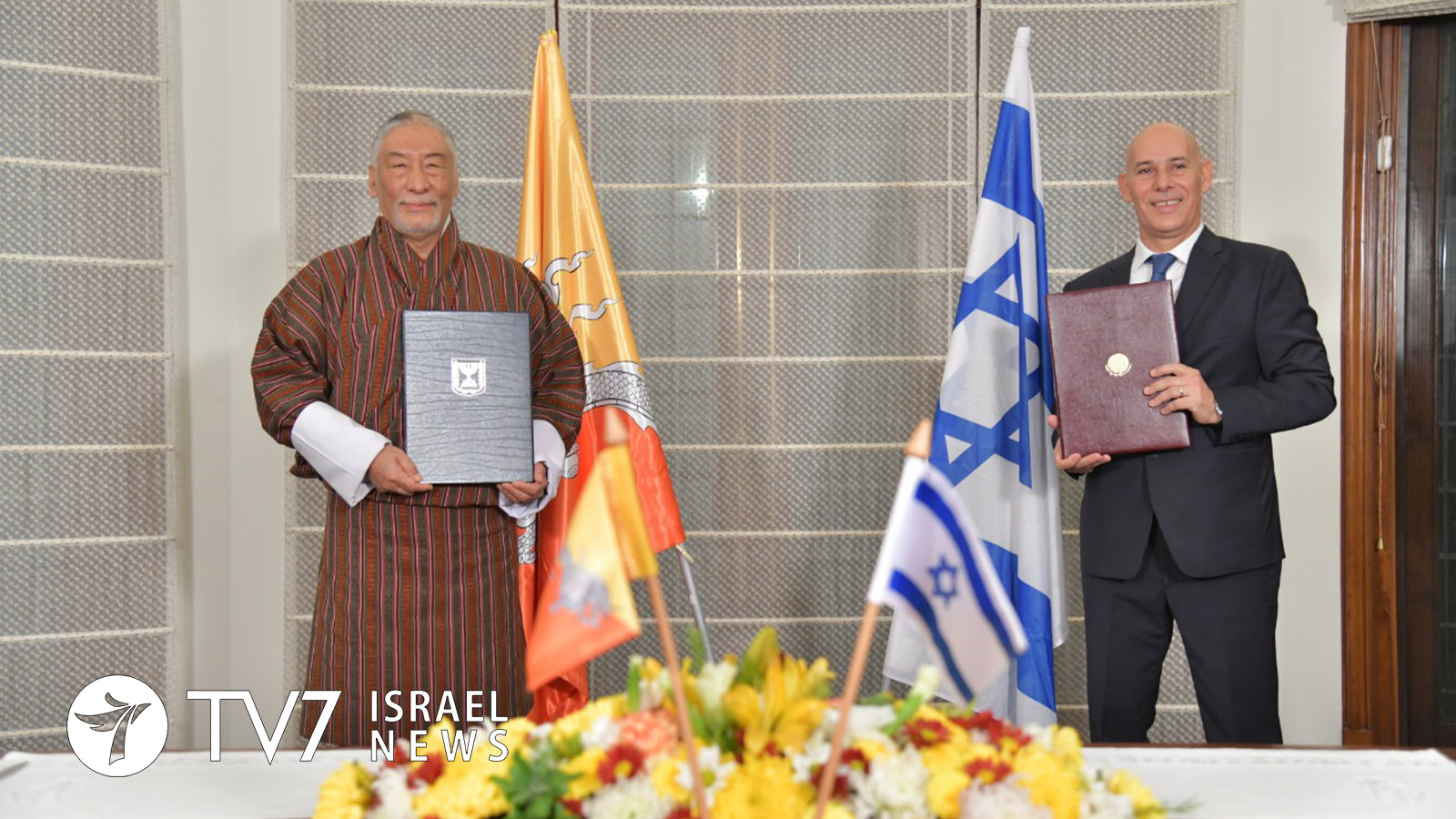Israel and Bhutan have established full diplomatic relations.
A signing ceremony was held by the Israeli and Bhutanese ambassadors to India, Ron Malka and Maj. Gen. Vetsop Namgyel respectively, on Saturday at the Israeli embassy in New Delhi.
“The establishment of diplomatic relations (will) create new avenues for cooperation between the two countries in water management, technology, human resource development, agricultural sciences and other areas of mutual benefit,” said a joint press release posted on the Bhutanese foreign ministry’s website.
Bhutan is a small, landlocked kingdom in the Himalayas, bordered by India to the south and the Tibet Autonomous Region of China to the north. 74.8% of the population of just over 770,000 people are believers in the state religion of Vajrayana Buddhism, only 0.5% are Christian and none are known to be Jewish.
The South Asian kingdom is a unitary parliamentary constitutional monarchy headed by 40-year-old “Dragon King” Jigme Khesar Namgyel Wangchuck, who ascended to the throne in 2006. The country long relied on India for advise on foreign and defense policy until 2007, when a treaty of friendship was revised.
Israel’s Ministry of Foreign Affairs (MFA) revealed that the breakthrough in relations came after several years of secret contacts between the two nations. Foreign Minister Gabi Ashkenazi finalized the agreement in a conversation last week with his Bhutanese counterpart, Foreign Minister Tandy Dorji; when they agreed on the signing date and a plan for joint collaboration in the water management, agriculture and health sectors.
“Israel’s circle of recognition is growing and expanding,” Israeli Foreign Minister Gabi Ashkenazi said. “The establishment of relations between us and the Kingdom of Bhutan will serve as another milestone in deepening Israel’s ties in Asia.”
Defense Minister and Alternate Prime Minister Benny Gantz released a statement commending the establishment of full diplomatic ties with Bhutan as “further evidence of the positive developments in Israeli foreign relations over recent months, spearheaded by Israel’s MFA under Gabi Ashkenazi’s leadership.”
Prime Minister Benjamin Netanyahu welcomed the development, calling it an “additional fruit of the peace agreements,” adding that, “We are in contact with additional countries that want to join and establish relations with us.”
Bhutan’s previous lack of relations with Israel was not linked to the conflict with the Palestinians nor to the US-brokered agreements seeking normalization with Israel from Muslim states, but rather the result of the remote kingdom’s isolationist policies. To date, the tiny country maintains diplomatic relations with only around 53 countries, although it is on the path toward expanding international diplomatic links.
Bhutan, which was founded in 1907, has only permitted the entry of tourists since 1970, with the first transmission of television and the internet in 1999.
The Asian country joins four Arab states to have normalized formal ties with Israel in stunning diplomatic breakthroughs since August, following accords with the United Arab Emirates, Bahrain, Sudan and Morocco.
